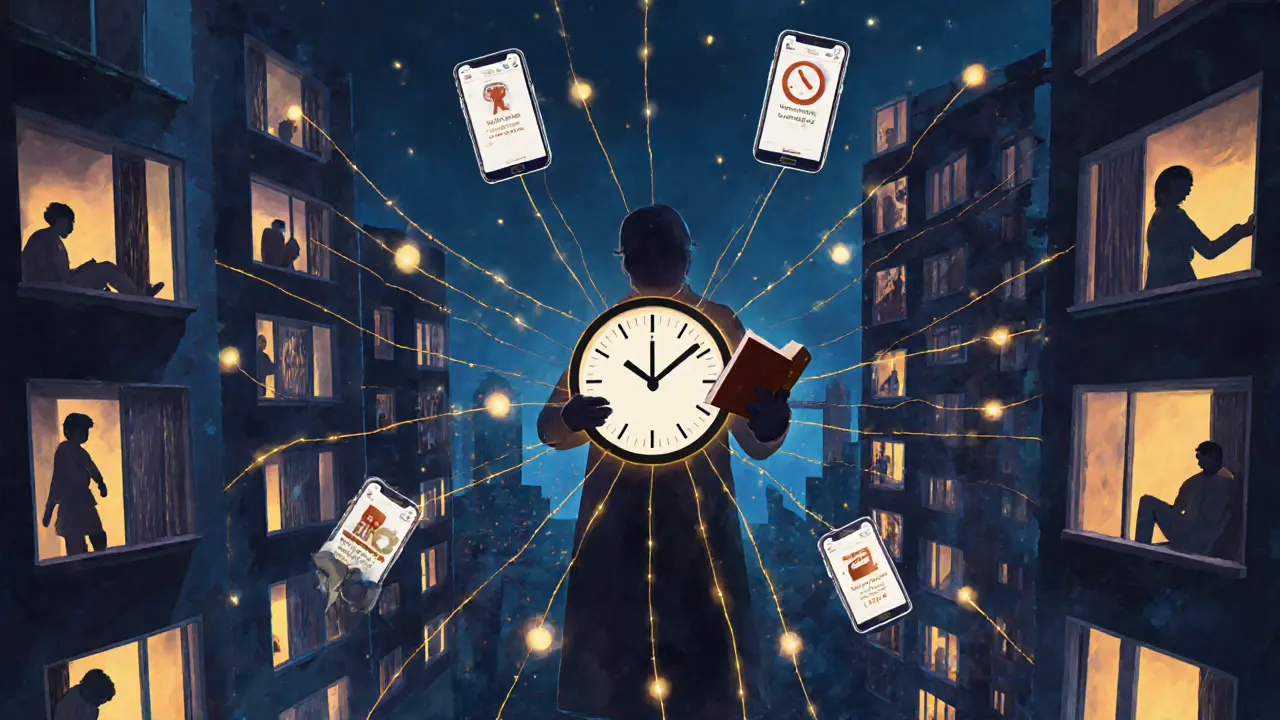When people talk about escorts in London, they often jump to assumptions. But the reality is more layered than headlines suggest. Thousands of people in the city hire companions for reasons that have little to do with sex. Some want someone to talk to after a long week. Others need a partner for a charity gala, a business dinner, or a family event where showing up alone feels awkward. The modern escort in London isn’t just a service - it’s a response to real gaps in social connection.
Who Uses Escort Services in London?
It’s not just wealthy businessmen or tourists. A 2023 survey by the London Social Dynamics Institute found that 42% of clients were professionals aged 30-50 - engineers, teachers, nurses, and small business owners. Many were divorced, widowed, or lived alone. One client, a 47-year-old software developer, said he hired an escort twice a year just to have someone to walk with through Hyde Park and talk about books. He didn’t want sex. He wanted presence.
Women make up nearly 30% of clients. Some are single mothers who need a date for their child’s school event. Others are executives attending international conferences and want to avoid the pressure of small talk with strangers. The stigma around hiring companions has dropped sharply since 2020, especially among younger urban professionals who see it as a form of emotional labor, not exploitation.
What Do Escorts Actually Do?
The job description varies widely. Some escorts focus on conversation and companionship. Others attend events, travel with clients, or act as date placeholders. Physical intimacy is an option - but it’s not guaranteed. Most reputable agencies in London now list services clearly: dinner dates, museum tours, theater nights, airport pickups. Many clients choose these options because they want to feel normal, not hidden.
One London-based escort, who works under a pseudonym and has been in the industry for seven years, says her most common request is for someone to sit with her client while they recover from surgery. “They don’t want a nurse,” she told a local journalist in 2024. “They want someone who doesn’t treat them like a patient.”
Another common request is for mock dates - helping clients practice social skills before real meetings. A 2024 study by the University of Westminster found that 18% of escorts in London reported working with clients who had social anxiety or autism. These clients paid for structured, low-pressure interactions to build confidence.
The Business Side: Regulation and Safety
Unlike in some countries, prostitution is legal in the UK - but soliciting, brothel-keeping, and pimping are not. This creates a gray zone. Escorts in London mostly operate independently or through agencies that call themselves “companion services.” These agencies screen clients, set boundaries, and provide safety protocols. Many use encrypted apps for communication and require ID verification.
There’s no official licensing, but the industry has developed its own standards. Reputable providers in London now offer: background checks for clients, location tracking for escorts, and strict no-contact policies after service ends. Some even offer mental health resources. A 2025 report from the London Escort Collective showed that 73% of independent escorts now use safety apps like “SafeCompanion” or “EscortShield,” which alert contacts if a session goes over time or if the escort doesn’t check in.
Violence against escorts remains a concern. But the number of reported incidents has dropped 31% since 2021, according to the Metropolitan Police’s 2024 annual review, largely due to better vetting and peer networks.

Why This Service Exists - The Social Vacuum
London is one of the most populous cities in Europe. But it’s also one of the loneliest. A 2024 Office for National Statistics report found that 1 in 5 adults in Greater London often feel isolated. The cost of living has pushed many into smaller apartments, longer work hours, and fewer community ties. Friendships fade. Family lives far away. Dating apps are saturated and exhausting.
Escorts fill a space that institutions don’t. Therapy is expensive. Support groups are hard to find. Friendships require time - and many people just don’t have it. The escort industry doesn’t replace human connection - it temporarily supplements it. And for some, that’s enough to get through a difficult season.
Myths vs. Reality
Let’s clear up a few myths.
- Myth: All escorts are trafficked or forced. Reality: Over 90% of independent escorts in London say they chose this work voluntarily, according to the 2024 London Escort Survey. Many have degrees, full-time jobs, or other careers.
- Myth: It’s all about sex. Reality: Less than half of sessions involve physical intimacy. Many clients pay for conversation, company, or emotional support.
- Myth: It’s only for the rich. Reality: Rates range from £50/hour for local companions to £500/hour for high-profile services. Most clients pay £100-£150 for a 2-hour dinner and walk.
One escort, who used to work in public relations, left her job after burnout. She now works part-time as a companion and tutors students online. “I’m not selling my body,” she said. “I’m selling my time, my attention, and my calm.”

What’s Changing in 2025?
The industry is evolving fast. More escorts are launching podcasts, writing memoirs, and speaking at universities. Some are pushing for legal recognition as independent contractors - not sex workers, but professional companions. A new bill proposed in the Greater London Assembly in early 2025 would create a voluntary registry for companion services, offering safety certifications and access to legal advice.
AI chatbots are also entering the space. Some clients now use AI companions for low-stakes conversations before deciding to meet someone in person. But human connection still wins. One client said, “I tried a chatbot for a week. It was helpful. But it didn’t remember my cat’s name. She did.”
Final Thoughts
The role of the escort in modern London isn’t about morality. It’s about need. People are lonely. The city doesn’t always provide the support systems to fix that. For some, hiring a companion is the most practical solution they have.
It’s not perfect. There are risks. There are abuses. But dismissing the entire industry as sleazy ignores the real lives - both of the escorts and the clients - who use it to survive, cope, or simply feel less alone.
Maybe the real question isn’t why people hire escorts. It’s why society doesn’t offer more ways to connect - before people have to pay for it.
Are escort services legal in London?
Yes, selling sexual services between consenting adults is legal in London. However, activities like soliciting in public, running a brothel, or pimping are illegal. Most escorts operate independently or through agencies that avoid these legal gray areas by focusing on companionship, not explicit sex work.
How much do escorts in London charge?
Rates vary based on experience, location, and services offered. Most independent escorts charge between £100 and £150 per hour for companionship, dinner dates, or events. Premium services with travel or overnight stays can reach £400-£800. Some offer discounted rates for students or repeat clients.
Do escorts in London have other jobs?
Many do. A 2024 survey found that 61% of independent escorts in London have at least one other source of income - including teaching, freelancing, healthcare work, or creative careers. Some use escorting as a flexible side gig to cover rent or pay off student debt.
Is it safe to hire an escort in London?
Safety depends on the provider. Reputable agencies and independent escorts use verified client screening, location tracking, and emergency protocols. Apps like EscortShield and SafeCompanion are widely used. Avoid services that don’t require ID, refuse to share meeting details, or pressure you into last-minute changes.
Can escorts in London help with social anxiety?
Yes. Many escorts work specifically with clients who have social anxiety, autism, or recovery from trauma. These sessions are often structured like practice dates - walking through a museum, having coffee, or attending a low-key event. The goal is to build confidence in real-world interactions, not to provide sexual services.









Write a comment